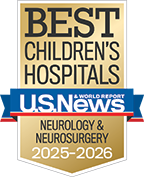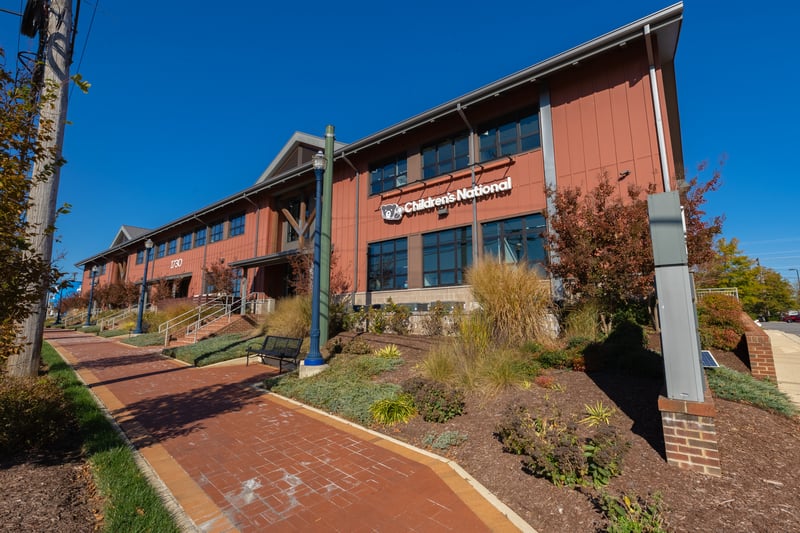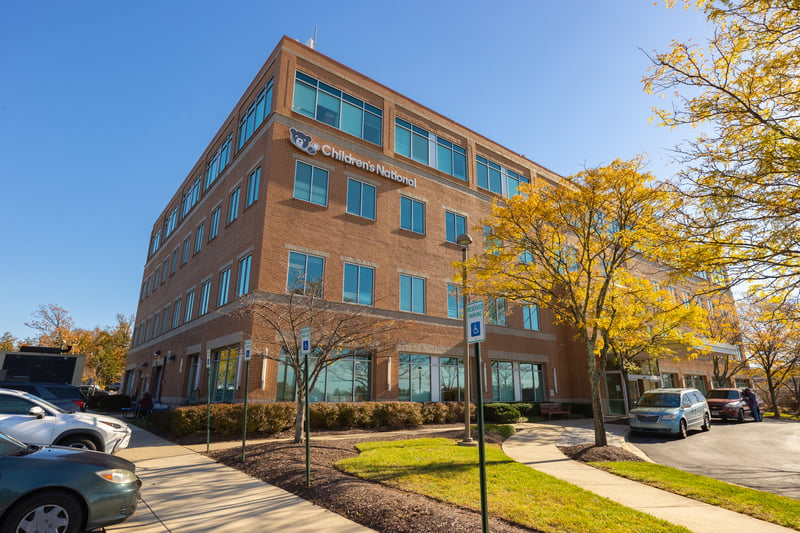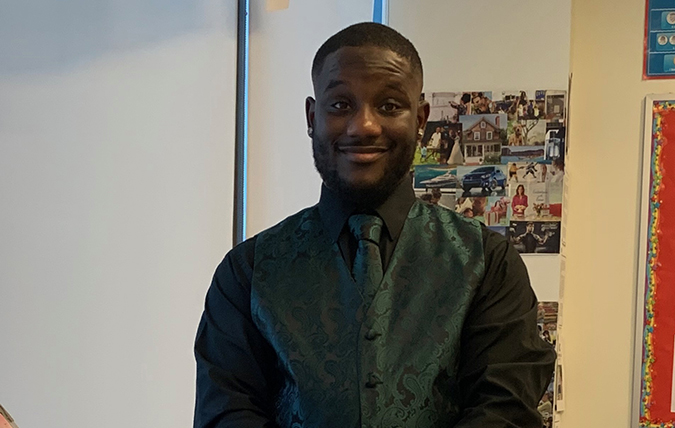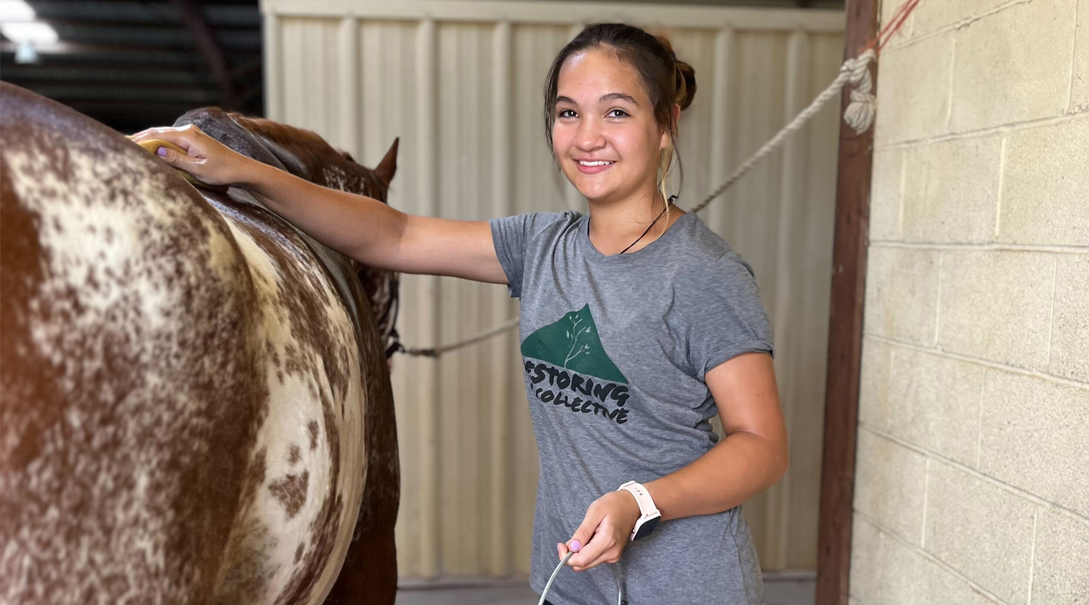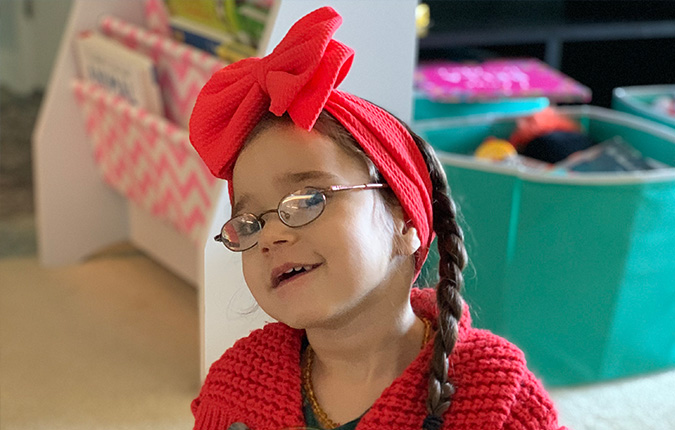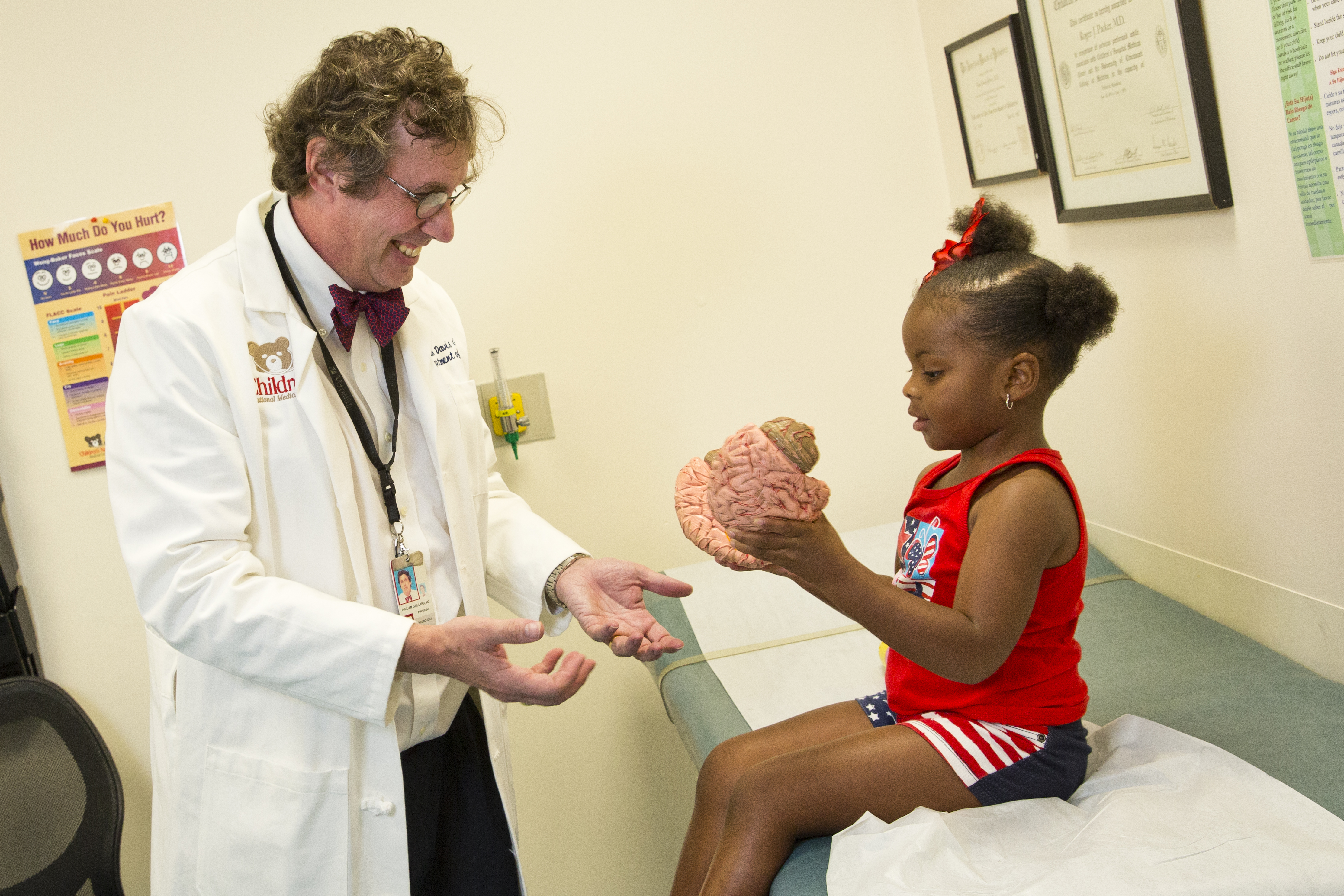

From first-time seizures to hard-to-control (intractable) epilepsy, the Comprehensive Pediatric Epilepsy Program offers a complete range of individualized treatments, including minimally invasive surgery and dietary therapies to eliminate seizures that can potentially injure a child’s brain. We collaborate with the Neuro Intensive Care Unit, Neonatal Neurology and Neonatal Neurocritical Care Program and Neurobehavior Program to find the best possible outcomes for our patients.
Our Providers
Our pediatric specialists provide personalized care for your child’s physical, mental and emotional health needs.
Contact Information
For appointments, please call 1-888-884-BEAR (2327) and for information, call Jessica Ceja at 202-476-2265.
Each year, our program cares for kids in thousands of epilepsy-related visits for several conditions, including:
- Epilepsy
- Neuromuscular disorders
- Stroke
- Traumatic brain injury
- Hypoxic ischemia (shortage of oxygen to the brain)
Treatment may involve a combination of therapies and services, such as diagnostic testing, inpatient medical care, inpatient intensive care or ongoing outpatient treatment and support. We help you and your child manage the social, educational and emotional difficulties that you may face on your treatment journey.
Advanced Epilepsy Care at Children’s National
The Comprehensive Pediatric Epilepsy Program at Children's National Hospital has success rates among the best in the country. Our program is recognized by the National Association of Epilepsy Centers as a Level 4 epilepsy center, designating Children’s National as having the most specialized epilepsy care and innovative surgical techniques available.
Highlights of our program include:
- Expert care. Our team includes pediatric neurologists with formal training in epilepsy care (epileptologists) and experts in epilepsy testing and treatment, including surgery and support. These experts collaborate to offer your child access to the best possible care.
- Leading-edge technology. We were one of the first teams in the world to use magnetic resonance imaging (MRI) during epilepsy procedures (intraoperative MRI or iMRI). iMRI helps us accurately target the areas of the brain responsible for seizures and protect healthy brain tissue, which helps your child achieve the best possible long-term results and reduces the need for additional operations. We also use advanced non-invasive neuroimaging techniques to ensure the most precise treatment possible. Read more about pediatric epilepsy surgery at Children’s National.
- Research. William Davis Gaillard, MD, an international leader in epilepsy imaging, treatment and research, guides our team in advancing epilepsy research and care here at Children’s National and beyond. Learn more about epilepsy research.
- Dietary therapy. Following a special diet can reduce the amount of anti-seizure medication your child needs, which can protect him or her from unpleasant side effects. In our Dietary Therapies for Epilepsy Clinic, we offer counseling and support for many diets designed especially to meet the needs of children with epilepsy.
- Support services. We offer specialized summer camps for children with neurologic conditions, including epilepsy. Our Camp Great Rock helps children build confidence and make new friends in a safe and supportive environment. We also offer an epilepsy support group for patients, parents and caregivers.
- Neurobehavior Program. We are one of the few programs in the country to offer an interdisciplinary approach to neurologic illness that includes a psychiatric perspective.
Surgical Treatment for Hard-to-Control Epilepsy
One out of 10 children with epilepsy can benefit from a surgical intervention. We recommend discussing surgery as an option with your child’s neurologist early in the course of care. Research shows early intervention leads to the best outcomes.
Surgery may be right for your child if medications and other treatments fail to relieve symptoms for hard-to-control or intractable epilepsy. Our team of neurosurgery experts evaluates and develops a surgical care plan tailored to your child’s individual needs.
Surgical epilepsy treatments include:
Resection
Vagal nerve stimulation
Disconnection
Epilepsy and Mental Health
Eleni Rizakos, PsyD, a psychologist in the Epilepsy Program, discusses epilepsy and your child's mental health.

Pediatric Epilepsy Surgery
Our team of epilepsy surgeons focuses on minimally invasive epilepsy surgery, which limits approach-related surgical trauma and has been shown to improve postoperative results.
Dietary Therapies for Epilepsy Clinic
The Dietary Therapies for Epilepsy Clinic is dedicated to answering your questions about dietary treatment plans that prevent or reduce seizures.
Additional Contact Information
To make an appointment with the Ketogenic Diet Program, call 202-476-3611.
Please note: Before making an appointment with the Ketogenic Diet Program, families of prospective patients should discuss the diet with the child’s neurologist, to ensure the neurologist wants the child to be on the diet.
The program also requires that forms about the child’s condition and medications to be filled out by the neurologist and returned prior to the first clinic visit.
Locations
This is a carousel. Use Next and Previous buttons to navigate.





